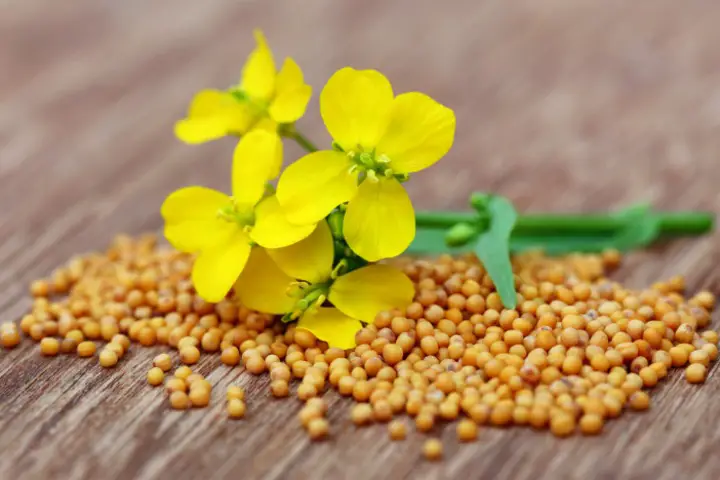
Important: This article is for informational purposes only. Please read our full disclaimer for more details.
Heartburn is caused due to the imbalance in the acid produced by the gastrointestinal tract. It usually leads to a strong pain in the chest and causes a burning sensation in the heart hence termed as heartburn. It also causes a strong burning sensation in the throat sometimes leading to excessive coughing.
Indigestion, consumption of food products such as beans, broccoli and pulses, irregular timings for meals and bacterial infections of the gastrointestinal tract can all lead to heartburn. Antacids are usually used to cure heartburn but naturally derived products such as mustard have minimal side-effects.
Here we would tell you how you can use mustard to your benefit for curing heartburn.
Can Mustard be used for Curing Heartburn?
Mustard is commonly a part of everyday diet in most households. There are a number of reasons that mustard is considered a healthy component of diet and would be helpful in curing heartburn.
- Mustard contains a very low amount of acid just like vinegar.
- The low acid concentration in mustard helps in balancing the pH of the stomach acid helping relieve the pain caused due to the acid imbalance in the gastrointestinal tract.
- Mustard also helps reduce the production of acid due to its vinegar content.
How to Use Mustard for Heartburn?
1. Mustard Paste
- Mix mustard powder with a little warm water and turn it into a paste.
- Consume one teaspoon of this paste directly.
- If this is too strong the paste can be mixed with water and then consumed.
- Consumption of this paste will give you that much needed relief and help you ease that discomfort.
2. Mustard with Honey
- Mix two teaspoons of yellow mustard powder in a glass of warm water.
- Add one teaspoon of honey and mix well.
- Drink this concoction every day as soon as it is mixed.
- Prolonged use of this concoction can help in permanently resolving the problem.
3. Mustard with Buttermilk
- Mix 3 teaspoons of mustard powder in one glass of buttermilk.
- To this add one teaspoon of cilantro for flavouring if you can not bear the taste of mustard in buttermilk.
- Drink this as soon as it is mixed.
- Both buttermilk and mustard will have a significant effect on the heartburn and will reduce the heartburn.
4. Mustard Tea
- Clean mustard seeds and grind them to form a paste.
- Mix this with boiling water for 1 minute and let it stand for 10 minutes.
- Once brewed, and when the temperature becomes bearable enough to drink, consume this mustard tea.
- Consumption of mustard tea has proven benefits in reducing heartburn.
Tips and Precautions
- Ensure that the intake of mustard is slow as it increases effectiveness of mustard in relieving heartburn.
- Over-consumption of mustard reduces its effectiveness in relieving this health ailment.
- Use fresh organic mustard and ensure it is not contaminated with other spices or seeds.
- Wash the mustard seeds thoroughly to wash-off the pesticides or any harmful chemicals.
- Avoid drinking any other liquids after consuming mustard.
- Hold your head up for a few minutes to increase the effect of mustard for reducing the heartburn.
You Might Also Like:
- Apple Cider Vinegar for HeartBurn Relief: Does It Work?
- Baking Soda for Acid Reflux: How to Use?
- 6 Simple Homemade Natural Eye Creams for Dark Circles
- How To Improve Your Hair Texture Naturally?
- How to Remove Tan from Skin Using Lemon Juice?
Image:- 1
















